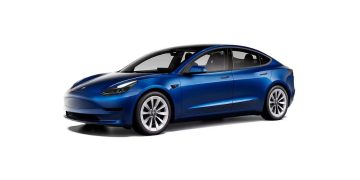In an exciting collaboration, Suzuki, the renowned Japanese multinational corporation, and SkyDrive, a promising Japanese start-up, have joined forces to revolutionize the production of flying cars, also known as electric vertical take-off and landing (eVTOL) aircraft. With ambitious goals of becoming pioneers in the rapidly expanding industry, Suzuki plans to embark on joint manufacturing activities with SkyDrive by the spring of 2024.
To facilitate the production of these innovative vehicles, Suzuki and SkyDrive have identified a Suzuki Group factory located in central Japan as the ideal production site. Manufacturing activities are expected to commence around the spring of next year, as detailed in Suzuki’s official statement. This strategic decision highlights Suzuki’s commitment to embracing cutting-edge technologies and driving forward the future of transportation.
By partnering with SkyDrive, Suzuki aims to seize the tremendous market potential offered by flying cars. The soaring demand for advanced aerial mobility solutions presents a remarkable opportunity for both companies to showcase their expertise and secure a leading position in this emerging field. Together, they will harness their collective strengths and resources to develop state-of-the-art eVTOL aircraft that will redefine urban transportation.
As part of their collaborative efforts, SkyDrive will establish a subsidiary dedicated solely to the production of eVTOL aircraft. This specialized subsidiary will operate under the guidance of SkyDrive’s experienced team, ensuring a focused approach to manufacturing these futuristic vehicles. Suzuki, with its extensive industry knowledge and resources, will support the subsidiary in various aspects of manufacturing preparation, including talent acquisition. This partnership will enable them to attract top-tier professionals skilled in the intricacies of eVTOL aircraft production.
The utilization of a Suzuki Group factory provides a solid foundation for this collaboration. Leveraging the existing infrastructure and expertise within the organization will expedite the production process and streamline operations. This strategic advantage sets the stage for efficient and high-quality manufacturing, positioning Suzuki and SkyDrive for success in the competitive market for flying cars.
Excitingly, this announcement comes on the heels of SkyDrive’s recent unveiling of an updated design for their in-development vehicle at the prestigious Paris Airshow. The enhanced design boasts the capability to accommodate three individuals instead of two, enhancing the vehicle’s versatility and passenger capacity. With dimensions of approximately 13 meters in length and 3 meters in height, the redesigned vehicle offers an extended maximum flight range of about 15 kilometers, surpassing its previous range of 10 km.
The collaboration between SkyDrive and Suzuki in the realm of flying vehicles was first announced in March 2022. Since then, both companies have been diligently working to refine their partnership details and solidify their shared vision of advancing aerial transportation technology. The current development represents significant progress toward their mutual goal and underscores their commitment to transforming the future of mobility.
The Future Impact of Flying Cars:
Flying cars, or eVTOL aircraft, have long captured the imagination and fascination of people worldwide. These futuristic vehicles are envisioned as the next leap in transportation, offering the ability to seamlessly transition between ground and air travel. While the concept of flying cars has been a staple in science fiction, realizing this vision, in reality, poses several challenges.
One of the primary hurdles to the widespread adoption of flying cars is navigating the complex web of regulations and infrastructure requirements. To safely integrate these vehicles into urban environments, regulatory bodies must establish guidelines and air traffic management systems that ensure safe and efficient operations. Additionally, the development of infrastructure such as landing pads and charging stations for eVTOL aircraft is crucial for enabling their widespread use.
Safety concerns also play a significant role in the advancement of flying cars. As with any form of transportation, ensuring the highest levels of safety for passengers and pedestrians is paramount. Advanced technologies, including robust collision avoidance systems, autonomous flight capabilities, and reliable energy storage solutions, are essential to address these concerns.
Despite these challenges, ongoing developments and collaborations between the automotive and aerospace industries are propelling the realization of flying cars. As the market continues to evolve, several key players are actively shaping the future of aerial mobility. Companies such as AeroMobil, Airbus S.A.S., Hyundai Motor Company, Klein Vision s.r.o., Lilium, PAL-V N.V., Samson Motors, Inc., Terrafugia, The Boeing Company, and Volocopter GmbH are at the forefront of developing and commercializing flying cars.
Market projections indicate a bright future for the flying car industry. The global market is expected to reach a value of $3,804.18 million by 2035, exhibiting a significant compound annual growth rate of 34.1%. Europe is anticipated to be the largest contributor, with an estimated value of $1,618.68 million by 2035. These projections highlight the immense potential and lucrative opportunities that lie ahead for companies venturing into the flying car market.
As Suzuki and SkyDrive forge their partnership, they are poised to make significant contributions to the future of transportation. By combining their expertise, resources, and shared vision, they aim to revolutionize urban mobility and pave the way for a new era of aerial transportation. With their collaborative efforts, the day when flying cars gracefully soar through our skies is inching closer, promising a transformative impact on our daily lives.












































































































































































